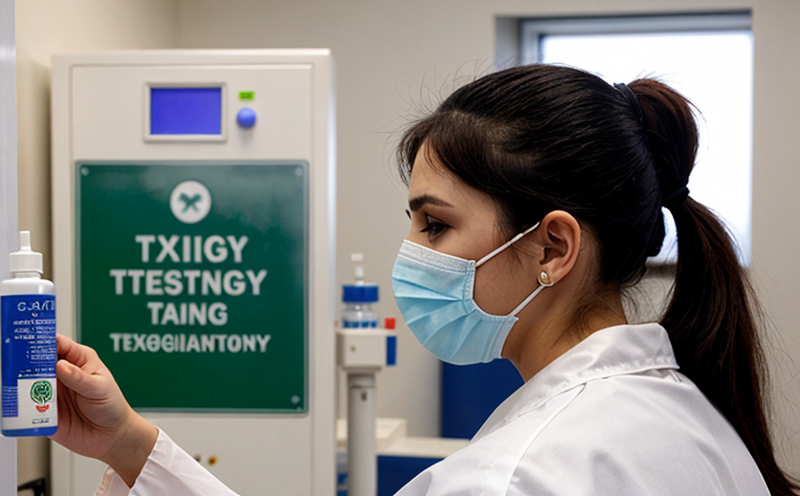Safety Pharmacology Exploratory Cardiovascular Testing
In safety pharmacology exploratory cardiovascular testing, our laboratory specializes in conducting preclinical assessments aimed at identifying potential adverse effects on the cardiovascular system. This comprehensive service is critical for pharmaceutical and biotechnology companies to ensure that new drug candidates do not pose risks when administered to humans.
The primary goal of this testing is to evaluate the cardiovascular safety profile of experimental drugs, which includes assessing hemodynamic changes, arrhythmias, bradycardia, tachycardia, hypotension, and hypertension. These tests are performed in accordance with international standards such as ISO and ICH guidelines.
Our team of experts uses state-of-the-art equipment to conduct these assessments, including telemetry systems that continuously monitor heart rate, blood pressure, and electrocardiogram (ECG) data over extended periods. This approach allows us to capture subtle changes in cardiovascular function that might be missed by shorter-duration studies.
The testing process begins with the selection of appropriate animal models based on the drug's mechanism of action and target organ. Commonly used animals include mice, rats, dogs, and monkeys due to their physiological similarities to humans. Each model is carefully selected for its suitability in predicting human responses.
During the test phase, a series of pharmacokinetic studies are conducted to determine how the drug behaves within the body. This includes measuring absorption, distribution, metabolism, and excretion (ADME) parameters, which are crucial for understanding the drug's impact on the cardiovascular system.
We also employ advanced imaging techniques such as magnetic resonance imaging (MRI) and computed tomography (CT) scans to visualize changes in heart structure and function. These non-invasive methods provide valuable insights into the long-term effects of the drug on the heart, which is essential for ensuring that any observed adverse events are accurately characterized.
The data collected during these tests undergo rigorous statistical analysis to identify trends and correlations with known cardiovascular toxicities. This comprehensive approach ensures that all relevant endpoints are evaluated systematically, allowing us to provide robust safety profiles for our clients.
Our laboratory adheres strictly to regulatory requirements and ethical guidelines throughout the testing process. We ensure that all procedures are conducted in accordance with Good Laboratory Practices (GLP) and International Conference on Harmonisation (ICH) standards, which are internationally recognized for their high level of scientific rigor.
Why It Matters
Safety pharmacology exploratory cardiovascular testing is essential for the development of safe pharmaceutical products. By identifying potential cardiovascular risks early in the drug development process, companies can avoid costly delays and failures later on.
The results of these tests are critical for regulatory approval processes, as they provide crucial data to support the safety and efficacy claims made by pharmaceutical companies. Without this testing, there is a higher risk that approved drugs may cause adverse cardiovascular events once marketed.
Moreover, early identification of potential risks allows for the optimization of drug formulations and dosing regimens, leading to more effective therapies with fewer side effects. This not only enhances patient safety but also increases the likelihood of successful market launch and commercial success.
Scope and Methodology
The scope of our exploratory cardiovascular testing includes a wide range of parameters that are critical for assessing cardiac function. These include heart rate variability, electrocardiogram changes, myocardial contractility, and blood pressure dynamics.
- Heart Rate Variability (HRV): Measures the variation in time intervals between consecutive heartbeats, providing insight into autonomic nervous system activity.
- Electrocardiogram Changes: Captures electrical changes in cardiac function that may indicate arrhythmias or other disturbances.
- Myocardial Contractility: Assesses the strength and efficiency of the heart's pumping action.
- Blood Pressure Dynamics: Evaluates how blood pressure responds to different stimuli, such as stress or exercise.
The methodology involves a series of experiments designed to simulate various physiological conditions that may be encountered during drug administration. These include resting conditions, post-exercise recovery, and pharmacologically induced states.
Industry Applications
- Innovative biotech firms developing novel cardiovascular drugs.
- Pharmaceutical giants testing new formulations of existing medications.
- Clinical research organizations evaluating the safety profile of investigational agents.





